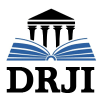Research Article
Aim & Scope
International Journal of Recreation and Sport Science is an OPEN ACCESS JOURNAL publishing double-blind peer-reviewed scientific papers in English. The journal is published once a year (in December). International Journal of Recreation and Sport Science publishes original research and review articles in the field of recreation and sports sciences. The main purposes of the Journal are (i) to share the results of the research on recreation and sports science with the readers, (ii) to reveal the problems with descriptive and other methods researchers and (iii)to propose solutions, and to share with the readers the review articles that emerged by examining recent developments in the field.
International Journal of Recreation and Sport Science is a scientific journal published internationally in English since 2017 and has a double-blind referee evaluation system. A final decision is made to decide that appropriate works for the fields of recreation and sports sciences applied research, screening, examination, case study, short report and editorial letter can be published after the evaluation of the referee. The work prepared in accordance with the writing rules will be sent to the referees for evaluation by the Journal editor. International Recreation and Sport Sciences Journals have the application of the double-blind peer-review process. The Journal editor and editorial board decide on the publication, in accordance with the opinion of the referees.
Submitted articles are not returned if they are published or published. All responsibilities (scientific, professional, legal, ethical, etc.) of the articles published in the Journal belong to the authors. The copyright of the published articles can not be transferred without the journal's ownership and reference. In order to establish the scientific communication between researchers, the below-mentioned articles published elsewhere are accepted in English.
Research Article
Articles that reflect original research with findings and results.
Review Article
It scans a sufficient number of scientific articles, summarizes the information at the current level of knowledge and technology, and evaluates and compares these findings.
Short Communication
A new method or descriptive text describing important findings of research made.
Copyright Transfer Form
Copyrights of all manuscripts are taken by sending a form to authors. Publications of authors who do not submit a Copyright Transfer Form are not processed. No add-ons can be made by authors over the articles decided to be published.
Author Guidelines
Articles submitted to the journal should be works with the following features:
Research studies with original scientific findings,
Studies that transfer the application examples with a scientific approach
Review studies evaluating important developments comprehensively on a particular subject
Articles should be uploaded to the system electronically at https://dergipark.org.tr/en/journal/1902/submission/step/manuscript/new
These articles cannot be published anywhere else and cannot be presented as a paper without the permission of the editorial board. All or part of the article cannot be used anywhere without citing the source. The authors in the article have to give a common opinion about the order of names.
Writing Rules
While writing your article, you can use the sample file written in accordance with the spelling rules.
For the sample article, please click on the file below.
Files expected to be sent with the article
1) Plagiarism Report (The articles are evaluated together with the plagiarism (IThenticate, Turnitin, etc.) report as of 2017, if the plagiarism report is not added.) If the plagiarism report is not added, the editorial board has the right to reject the article by checking whether there is plagiarism in IThenticate software.
The copyright transfer of the articles is taken by filling in and signing the form presented on the journal website. It should be downloaded as a PDF by downloading the signed Copyright Transfer Form from here and passing it through the browser after signing. Publications of the authors who do not send this form cannot be published.
Please suggest up to three (3) reviewers along with their academic qualification(s) and e-mail address (OPTIONAL but it will hasten review process).
Ethical Principles and Publication Policy
Publication Ethics
Ethical Responsibilities of Authors
Ethical Responsibilities of Editors
The editor and field editors of the International Journal of Recreation and Sport Science should hold the following ethical responsibilities that are based on the guides "COPE Code of Conduct and Best Practice Guidelines for Journal Editors" and "COPE Best Practice Guidelines for Journal Editors" published as open Access by Committee on Publication Ethics (COPE).
General duties and responsibilities
Relationships with Readers
Editors must make decisions taking into consideration the knowledge, skills and expectations of all readers, researchers and practitioners need. They must also ensure that the published studies contribute to the literature and be original. Moreover, they must take notice of the feedback received from researchers and practitioners and provide explanatory and informative feedback.
Relationships with Authors
Relationships with Reviewers
Relationships with the Editorial Board
Relationships with the Journal's Owner and Publisher
The relationship between the editors and the publisher is based on the principle of the independence of editors. All the decisions made by the editors are independent of the publisher and the owner of the journal as required by the agreement made between editors and publisher.
Editorial and Blind Review Processes
Editors are obliged to comply with the policies of the "Blind Review and Review Process" stated in the journal's publication policies. Therefore, the editors ensure that each manuscript is reviewed in an unbiased, fair and timely manner.
Quality Assurance
Editors must make sure that articles in the journal are published in accordance with the publication policies of the journal and international standards.
Protection of Personal Information
Editors are supposed to protect the personal information related to the subjects or visuals in the studies being reviewed and to reject the study if there is no documentation of the subjects' consent. Furthermore, editors are supposed to protect the personal information of the authors, reviewers, and readers.
Encouraging Ethical Rules and Protection of Human and Animal Rights
Editors are supposed to protect human and animal rights in the studies being reviewed and must reject the experimental studies which do not have ethical and related committee’s approval about the population given in such studies.
Precautions against possible Abuse and Malpractice
Editors are supposed to take precautions against possible abuse and malpractice. They must conduct investigations meticulously and objectively in determining and evaluating complaints about such situations. They must also share the results of the investigation.
Ensuring Academic Integrity
Editors must make sure that the mistakes, inconsistencies, or misdirections in studies are corrected quickly.
Protection of Intellectual Property Rights
Editors are responsible for protecting the intellectual property rights of all the articles published in the journal and the rights of the journal and author(s) in cases where these rights are violated. Also, editors must take the necessary precautions in order to prevent the content of all published articles from violating the intellectual property rights of other publications.
Constructiveness and Openness to Discussion
Complaints
Conflicting Interests
Editors, acknowledging that there may be conflicting interests between reviewers and other editors, guarantee that the publication process of the manuscripts will be completed in an independent and unbiased manner
Ethical Responsibilities of Reviewers
Ethical Responsibilities of Publisher
Unethical Behaviour
Should you encounter any unethical act or content in International journal of recreation and sport science apart from the ethical responsibilities listed above, please notify the journal by e-mail at intjorass@gmail.com.
Price Policy
International Journal of Recreation and Sport Science does not charge any fee for the submission, evaluation and publication of the articles. Authors do not pay article processing fees or submission fees for the studies they submit to the journal.
Indexes
Citation Indexes
Other Indexes
Journal Boards
Chief in Editor

He is an academic with a significant career and experience in Sports Sciences. After completing his undergraduate education at Kırıkkale University, Faculty of Sports Sciences, he obtained his master's and doctoral degrees at Gazi University. He continued his studies at Indiana University as a postdoctoral researcher.
Throughout his career, he has worked as a researcher and coordinator in European Union projects related to sports. His work and contributions to these projects have contributed to the international recognition and development of sports in different fields.
He has also played an active role in sports management and organization. He successfully served as a board member of the Turkish Sports for All Federation for two terms. He also served as a project board member of the Turkish School Sports Federation for two terms. He has been a member of the Tennis Technical Committee at the World School Sports Federation, and he continues to fulfill this role. In these roles, he emphasized the importance of sports in the education system and developed various projects to encourage young people to engage more with sports.
He continues his academic career as an Associate Professor at Mersin University, Faculty of Sports Sciences, Recreation Department. In this role, he not only teaches his students in the field of sports sciences but also leads research projects and mentors young academics.
His studies are an indication of a successful academic career in the field of Sports Sciences and his willingness to actively participate in different aspects of sports. His work and leadership roles emphasizing the importance of sports have contributed to the development of sports at both national and international levels.
Co-Editor

Editorial Board


Dr. C. Sukumaran is a dedicated Director of Physical Education at Government Law College with over two decades of teaching and research experience. He holds a Ph.D. in Physical Education and an M.Sc. in Psychology, alongside certifications in IBM Data Analysis and Systematic Review and Meta-Analysis.
Dr. Sukumaran has authored numerous peer-reviewed research articles on topics such as AI in Sports, Natural Language Processing, and Physical Education. He serves as an Academic Editor for PLOS ONE and as a reviewer for prestigious journals like the Journal of Multidisciplinary Healthcare and Journal of Prevention.
A member of the American Psychological Association (APA), Dr. Sukumaran’s contributions extend to international workshops and conferences, where he has been a valued resource person
Stevo Popovic is a full professor at University of Montenegro who has 10+ years’ experience with particular focus on planning, conducting, and evaluating research studies dealing with health and exercise, which also include clinical trials. As a sports and exercise scientist he uses knowledge of how the body works to help people improve their health and sporting ability at large. However, he has also profound insight into physical anthropology, and understands the complexity of how physical activity affect the human body and its composition; but, also into social anthropology that helps to understand the social side of the same issues. With a background as a Ph.D. from the University of Novi Sad and postdoc from the University of Ljubljana (ranked 1st in Slovenia, 326th in the global 2024 rating, and scored in the top 50% across 228 research topics), as well as a teacher and research at the University of Montenegro, he has achieved the following key competencies: knowledge of teaching and the ability to design courses, project and data management, study design expertise, excellent communication skills, and dissemination skills in both written and oral etc. He currently holds several leading positions in the national and international projects, as well as leading roles and memberships in the governing bodies of professional and scientific organizations. He is a former Dean of Faculty of Sport and Physical Education and Editor-in-Chief of University of Montenegro Press, both in two mandates, former member of HEPA Europe Steering Committee, FIEPS Board of Directors member and member of Montenegrin Academy of Science and Art (Centre for Young Scientists and Artists). On the other hand, among several other positions, he is currently a Co-Director of Balkan Institute of Science and Innovation and Associate Editor in British Journal of Sports Medicine (Physical Activity and Population Health section). Authored 85 articles in peer-reviewed journals indexed by Scopus database (17% as the first, 19% as the last, 55% as the co-author and 9% as the single author; 71.6% of documents co-authored with researchers in other countries/regions; 32.4% of documents in top citation percentiles; 27.4% of documents in the top 25% journals), several books, book chapters and conference papers and abstracts. Cited >7,600 times; H-index = 22; Field Weighted Citation Impact (FWCI) = 5.08. As a supervisor or methodological consultant contributed to five PhD dissertations as well as many bachelor and master research theses. In 2020, on the Stanford/Elsevier’s list of top 2% researchers globally.
Celia Marcen holds a PhD in Sociology of Public Policies and graduated in Political Sciences and Sociology. She also has an MBA in Sports Management and a degree in Physical Education Teaching. She is currently a full-time lecturer on Sociology at the Social Sciences and Education Faculty (University of Zaragoza, Spain). Her research lines are the sociology of sport and health, programme and policy evaluation, and gender.

Residing within the Department of Health & Wellness Design under the umbrella of the Indiana University School of Public Health –Bloomington as an Associate Professor, Dr. Ramos’ research is focused on examining the impact of both built and natural aquatic environments on the human experience. In addition, he also engages in the legal aspects of aquatics in the role of expert consultant. His educational preparation includes a Ph.D. in Leisure Behavior with a minor in Law from Indiana University.
Behind his research is over 30 years of practitioner experience in the field of aquatic management stretching from conventional pools and waterfronts to today’s modern waterparks. His insider exposure to the field of aquatic management has provided the impetus for research questions surrounding issues such as drowning prevention, physical activity, safe engagement, and recreational water illnesses.
Work on drowning prevention has connected him with projects throughout the United States, as well as several countries within Africa, and most recently Vietnam. Dr. Ramos’ current service contributions to the field include appointments to the board of The ZAC foundation, and American Red Cross Scientific Advisory Council as well as a role on the United States Water Safety Action Planning Committee.

Language Editor
Esra Gül ÖZCAN, Hacettepe University, TURKEY Selcan ERGUN, Middle East Technical University, TURKEY
Zülbiye KAÇAY, Canakkale On Sekiz Mart University, TURKEY
Co-Editor
Dr. Emrah ŞİMŞEK, İskenderun Technical University, TURKEY
Dr. Semih KALE, Çanakkale Onsekiz Mart University, TURKEY
Dr. İrem Kavasoğlu, Çukurova University, TURKEY
Dr. Cihan AYHAN, Sakarya University of Applied Sciences, TURKEY



Technical Editor
Prof. Dr. Murat YAKAR, Mersin University, TURKEY
Uzm. Ezgi KURSUN, Mersin University, TURKEY


 This journal is licensed under the Creative Commons Atıf-AynıLisanslaPaylaş 4.0 Uluslararası Lisansı
This journal is licensed under the Creative Commons Atıf-AynıLisanslaPaylaş 4.0 Uluslararası Lisansı












































